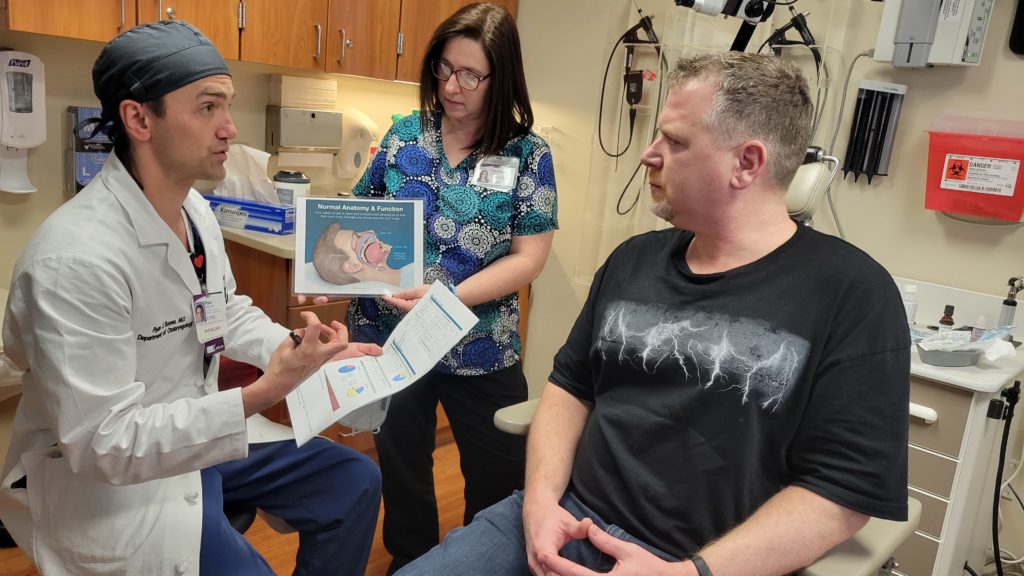Sight + Sound, Spring 2022
A recent multidisciplinary University of Pittsburgh study of veterans with traumatic brain injuries (TBI) uncovered something interesting. Of the 95 participants, 80 percent had a sleep disorder, second only to psychological health problems. Now the team is conducting the first large, controlled study specifically looking at former NFL players between the ages of 29-59.
“My hypothesis is that we will see a high percentage of sleep problems in this cohort, just like we did in the veterans,” said Ryan Soose, Associate Professor, Department of Otolaryngology at the University of Pittsburgh. As Director of the Sleep Division, Dr. Soose is part of the study team. He gave a shout out to ENT research coordinator Tina Harrison, who has contributed tremendously.
The first study – TEAM TBI – (Targeted Evaluation, Action, and Monitoring of Traumatic Brain Injury) laid the foundation for the current one, called the University of Pittsburgh Brain Health Initiative (BHI). TEAM TBI found that targeted treatment of specific disorders resulted in a decrease of symptom burden by about half after a 6–9-month intervention. Indeed, sleep is one of the key components that affects other outcomes.
“What we found was that if you intervene and improve people’s sleep, you can also improve their headaches, their balance, and their cognitive function,” Dr. Soose said. “Their mood gets better if they sleep better, their pain gets better, and so forth.”
People with TBI fall into poor sleep hygiene and spiral out of control, Dr. Soose explained. “They get into this vicious cycle where the head injury messes up their sleep, and then the poor sleep further degrades other TBI outcomes,” he added. “This study has the potential to get the cycle spinning the other way.”
The biggest thing that the team is trying to get through is that head injuries are likely a complex heterogeneous condition that requires a multidisciplinary evaluation and personalized treatment approach.
To recruit into the randomized cohort, BHI is partnering with the Harvard University Football Players Health Study, which has a robust sample from which they have generated a randomized list to contact for interest/enrollment. “This process preserves the scientific integrity of the study and eliminates self-selection bias,” said Kate Edelman, research coordinator for David Okonkwo, a neurosurgeon at UPMC and the Primary Investigator of the Brain Health Initiative. “It is equally important to have a non-randomized sample of players who hear of us largely through word of mouth and choose to volunteer.”
The study has been very well received among former NFL players, Edelman said. The day after last year’s Super Bowl, the first NFL player enrolled in the study. The schedule has been full since.
Enrollment – which includes a diverse range of race, ethnic backgrounds, socioeconomic status, geographical locations, as well as position and decade of play — will continue through 2022 and beyond, with preliminary data likely being analyzed in 2023. The study results will have wide-reaching implications, as the issue is not limited to the NFL. “This is something we might be able to generalize to the entire sports concussion community,” Dr. Soose said. In other words, this could lead to better education and preventative measures – not only in professional and collegiate athletics but also throughout youth sports.
“If we can help these athletes with their sleep and mental health, we’ll likely improve many other aspects of their TBI as well,” said Dr. Soose.
